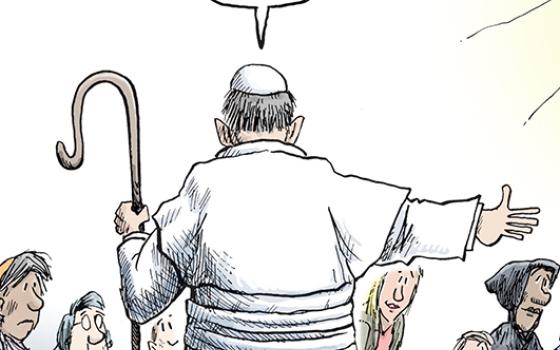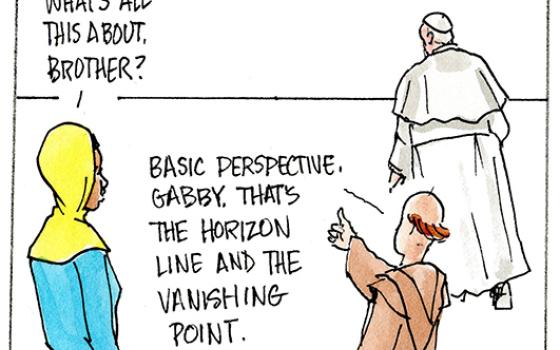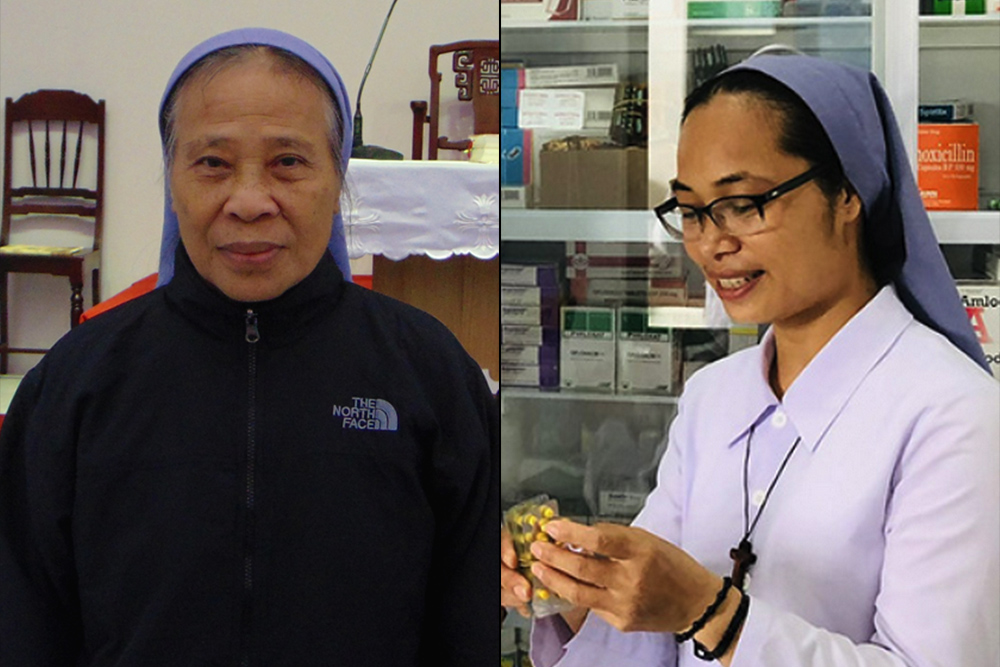
Left: Sr. Anne Nguyen Thi Nguyet (Joachim Pham); right: Sr. Mary Do Thi Ha (Courtesy of Kim Long Charity Clinic)
On Dec. 17, 2022, approximately 150 sisters, priests, Buddhist monks and nuns, caregivers, and government officials attended a ceremony to mark the 30th anniversary of the establishment of the Kim Long Charity Clinic in Hue, the capital of the central province of Thua Thien Hue in Vietnam.
Hue Archbishop Joseph Nguyen Chi Linh spoke highly of the Catholic clinic's staff and volunteers for offering their selfless services to poor patients. The clinic is owned by nuns from the Filles de Marie Immaculée (Daughters of Mary of the Immaculate Conception).
He said the health care center fills poor patients with warm feelings, humanity and divine love. It also serves as an ideal place for Catholics, government authorities, and volunteers from other faiths to provide free medical treatment and care for poor patients, people with physical disabilities, and victims of COVID-19 and climate change.
Founded in 1992, the clinic at first was served by Srs. Mary Consolata Bui Thi Bong and Mary Benedictine Nguyen Thi Dien, both medical doctors, in a small old house the local government had returned to the congregation. Each day, with the clinic's limited medicine and medical equipment, they examined up to 30 patients who could not afford treatment at public hospitals.
Because of their effectiveness, domestic and foreign benefactors donated money to build appropriate facilities and install medical equipment, including X-ray machines, ultrasound scanners and medical testers.
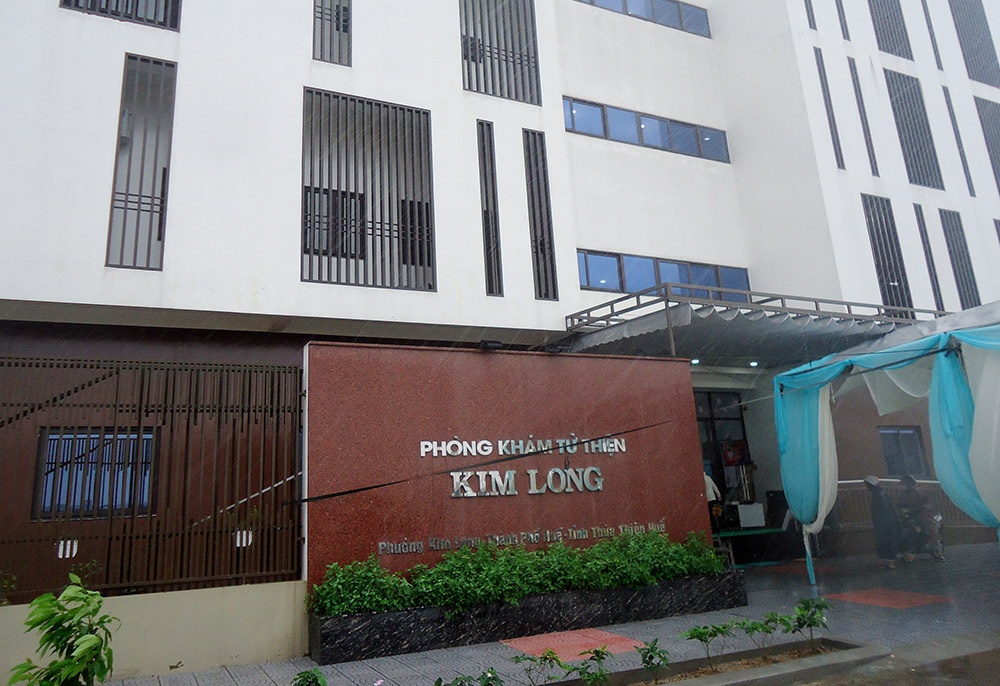
The Kim Long Charity Clinic is based in Kim Long ward in Hue, Vietnam. (Joachim Pham)
In 2019, local government authorities granted them a new plot of land to build facilities to serve thousands of displaced people relocated to a new residential area in Hue. Now, around 150 patients a day get medical treatment from the clinic, which is staffed by 55 doctors and nurses, including 10 nuns and 45 volunteers.
Srs. Mary Do Thi Ha, 47, and Anne Nguyen Thi Nguyet, 66, have worked at the clinic since 2015 and 2010, respectively. Ha, an expert in neuroendocrinology, serves as deputy director of the clinic, and Nguyet works as a nurse.
Both talked with Global Sisters Report about the clinic's model of healing people in need and caring for ethnic villagers in central Vietnam.
GSR: What does the clinic do?
Nguyet: We have given free medical treatment to hundreds of thousands of patients ranging from kids to the elderly for the past three decades. Most patients from the provinces of Quang Tri and Thua Thien Hue could not afford to receive treatment from local public hospitals. Many of them are people with HIV/AIDS and victims of COVID-19, natural disasters and climate change.
One of the highlights of our health services is that we work with Buddhist monks and nuns to care for people with HIV/AIDS. It is really touching that Catholics and Buddhists visit and pray at funerals of dead patients, helping ease the pain and sadness of their family members.
The provincial government appreciated our services and granted us a new plot of land in Hue in 2019 to build more facilities. We completed a four-story building in 2021 and immediately used it to provide health care for some 4,000 COVID-19 victims. After the prolonged pandemic was controlled in early 2022, we moved to the new facility and started to serve local patients last August.
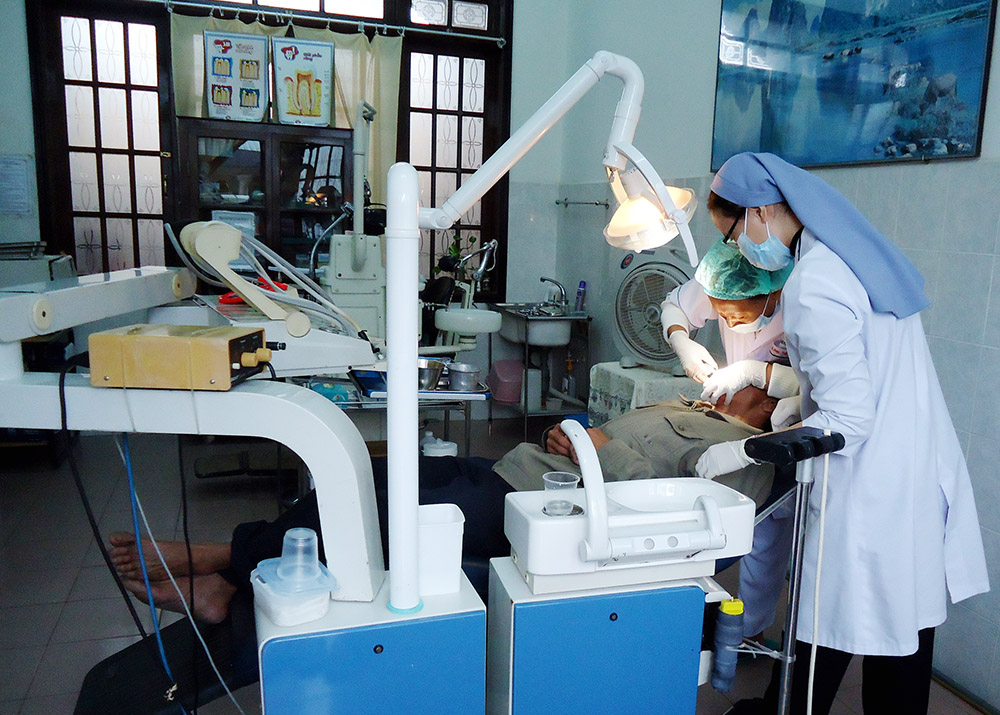
Sr. Mary Elizabeth Truong Thi Ha, a dentist, and another dental surgeon take care of a patient's teeth at the Kim Long Charity Clinic in Hue, Vietnam, on Dec. 2, 2022. (Joachim Pham)
Ha: We offer medical examinations, medication and herbal medicines, acupuncture and physical therapy to patients to some 150 patients per day. The clinic gives X-rays, blood and urine tests, ultrasound scanning, dental treatment, mother and children care, and health advice.
We transfer seriously ill patients to local public hospitals for further specialist treatment and give them financial assistance.
We work at the clinic five days a week and monthly provide medical care and gifts for ethnic minority villagers, blind people, people with leprosy, and patients with mental disorders in other places.
The operating costs of the clinic are 20 million to 25 million dong [$850 to $1,063] per month and are covered by benefactors from the country and abroad.
What are the differences between the Catholic clinic and others?
Nguyet: We have a chapel and a statue of Our Lady of La Vang in the clinic where our patients can pray for their healing process. Nuns daily kneel to pray in front of the Eucharist for patients. Consequently, many people believe that they are cured of their illnesses partly due to our prayers.
We always encourage seriously ill patients to put absolute trust in divine mercy and offer them pictures of the Holy Family to pray. Other patients are advised to recite prayers before taking medicines.
Advertisement
Many patients sink to the depths of despair, so we try to regain their faith by providing them with tender care and comfort and encouraging them to seek spiritual healing.
Years ago, a woman who collected scrap for a living was diagnosed with large intestine tumors at a private hospital and asked to undergo a medical operation that would cost 10 million dong. The woman, an ancestor worshipper, sought help from us, and we asked her to pray hard to Jesus, Mother Mary and St. Joseph. We called on donations from benefactors and got enough money for her medical fees. She came through the operation well at a public hospital. We believe that it was her faith that saved her.
You serve as both sisters and health care providers. Is that useful for your work?
Ha: Patients implicitly trust us who are religious, so they are quite willing to tell us their joys, sorrows, fears, anxiety, pain and even innermost secrets. Thus, we have opportunities to listen to, comfort and relieve their physical and emotional problems and share and sympathize with them.
A Buddhist couple in their 70s was taken to our clinic for chronic sciatica and high blood pressure. We provided them with medicine and acupuncture and sympathetically listened to their feelings. They had no children and earned only 60,000 dong per day from making bamboo baskets. We regularly visited and offered food to them. They felt relaxed about their life and recovered fully.
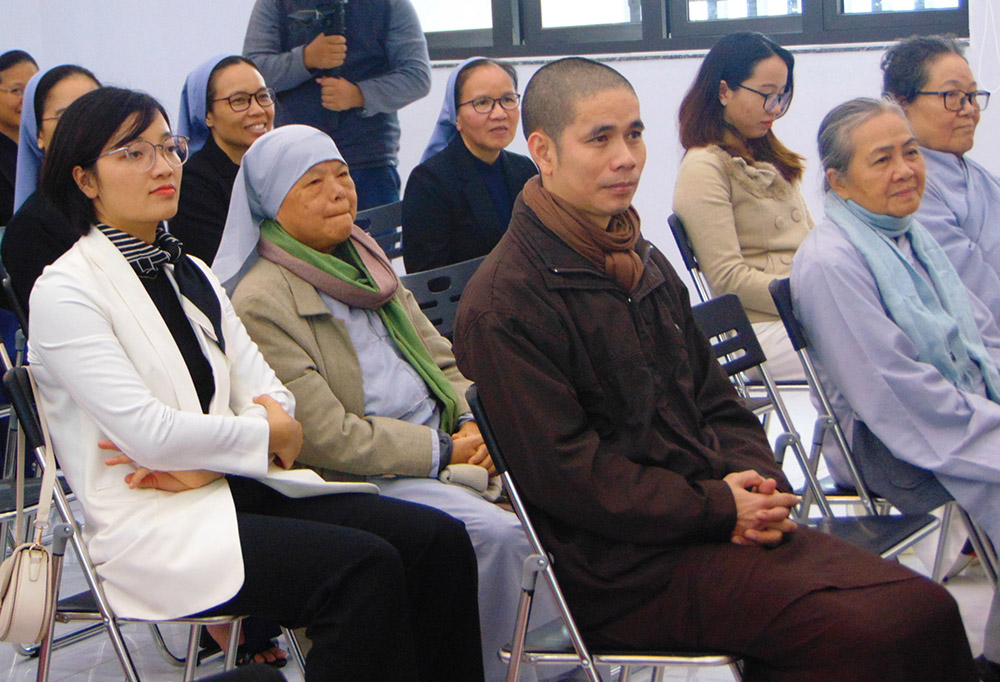
Dr. Thich Tam Quang (center), head of Hai Duc Clinic in Hue, Vietnam, and other Buddhists attend the Kim Long Charity Clinic's 30th anniversary celebration Dec. 17, 2022, in Hue, Vietnam. (Joachim Pham)
How do patients behave toward the clinic staff?
Ha: Many people express their gratitude to us by offering flowers and bonsais and volunteering to look after other patients and do the cleaning at the clinic.
Our patients are those who live in boats on rivers, resettled people, scrap collectors, street vendors, manual workers, elderly people. Other people also get free treatment from the clinic. All patients are treated fairly and kindly.
What do you do to improve ethnic villagers' health?
Ha: In 2005, a Co Tu ethnic man from A Luoi district took his baby into the local nuns' care after his wife died of hemorrhage, and villagers wanted to bury the baby and his mother together by their tradition. Since then, we have been visiting, providing them medicine and educating them in health care on a monthly basis.
When they get ill, villagers come to seek medical help from us rather than asking for help from local shamans.
We reduce high risks of infection and hemorrhage among pregnant women by sending them to give birth at local hospitals. In the past, they gave birth at home and cut their babies' umbilical cords themselves.
We often offer basic education, milk, clothes and health care to children, pregnant women, and others in districts of A Luoi and Nam Dong, which are home to ethnic minority groups of Co Tu, Pa Ko, and Ta Oi.
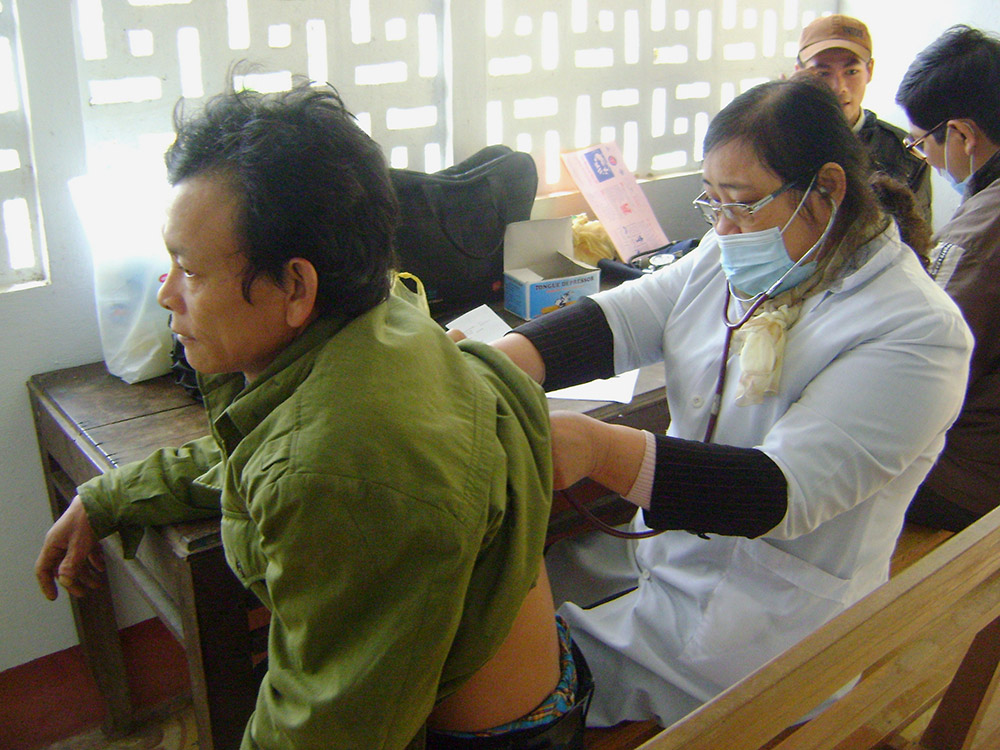
Dr. Tran Thi Hoa, a Buddhist, examines a Co Tu ethnic patient in Dong Nam district in Vietnam on Nov. 26, 2022. (Joachim Pham)
How can the clinic draw volunteers?
Ha: At first, we invited our friends and classmates to be involved in our work. Later, they encouraged their friends to join the clinic.
Now, about 45 volunteers, including doctors, nurses, teachers, experts and religious, work for the clinic. Thirty-one of them are from Buddhism and Confucianism, and the rest are Christian. Some work three days per week at the clinic, and others visit and care for patients at homes and hospitals and educate people in HIV/AIDS and health care at parishes. They are given 300,000 dong for their travel per month.
Staff members and volunteers respect one another and work hard together to bring comfort, peace and good services to patients and people in need.
Our motto is receiving patients means receiving Jesus.
What does the clinic plan to serve people better?
Ha: We plan to send more young nuns to train to be qualified doctors, physicians and nurses at local schools to succeed old ones. We will provide medical treatment and raise health awareness among people in remote areas in the neighboring Da Nang and Quang Nam province, where people have little access to health care due to lack of health care facilities.
We also continue educating people about how to avoid contracting HIV/AIDS and respect patients of the disease, who still suffer widespread discrimination against them.





